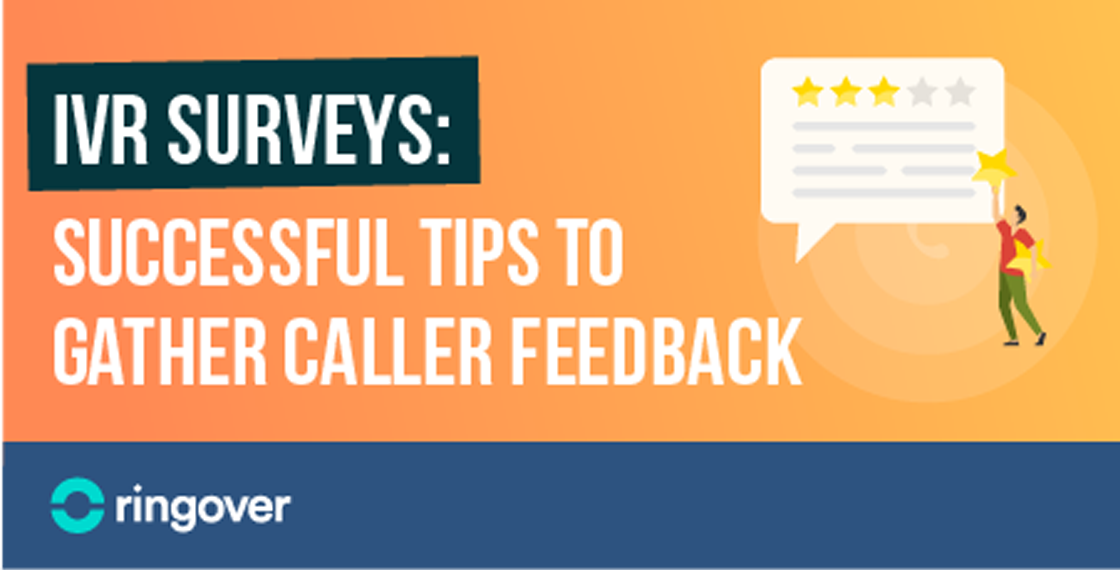Summary
Surveys are used by companies in all industries to gather client and/or consumer opinions on a range of areas: how does the company's service compare to competitors? How does the public perceive the company and its products? Is pricing fair for what clients are getting? What could the company be doing better? To help you sort out these questions, we've put together this collection of IVR survey tips.
If you're thinking of creating a survey for your business, we have good news: you've already taken the first step of acknowledging that there's room for improvement! No matter how good your sales figures look on paper, how happy your clients seem, or how low employee turnover is, outside feedback is an invaluable source of information for rooting out issues that even top management may not be aware of. And if you're facing more significant problems that you aren't sure how to solve, feedback from surveys can provide you with a fresh perspective and allow you to successfully adjust your approach to the issue at hand.
Aside from conducting a survey online, the easiest way to do so is through your company interactive voice response (IVR) menu.
The following article will outline the steps to take in order to create an IVR survey that will best assess your clients' overall satisfaction, help you improve potential problem areas within your company, and ultimately perform at your professional best.
What is an IVR survey?
An IVR survey involves a series of pre-recorded questions that prompts users to provide a response by either speaking or pressing a digit on their phone's keypad. Responses are typically provided on a Likert scale, with 1 representing "Very," 2 for "Slightly," 3 for "Not sure," etc.
IVR Survey Guide Video
How to carry out an IVR survey?
IVR surveys can be administered to volunteers who call specifically to participate (inbound IVR survey) or immediately after a call with a company representative (post-call IVR survey). The recorded nature of IVR surveys ensures that each caller hears the same question and possible answers the same exact way, as opposed to listening to an agent reading out a questionnaire and taking note of caller responses. It leads to more accurate results, saves time on analysis, and minimises human error and response bias (respondents are more likely to answer honestly).
To tips for creating successful IVR surveys
1. Determine the purpose of your survey
The purpose of a survey should be, first and foremost, to gather exact numbers that help your company's management make decisions for its betterment.

Before you start compiling survey questions, you need a precise idea of what you want to accomplish by carrying out the survey in the first place. Is there a particular weak point in your sales or customer service follow-up that needs to improve? Do you need to gauge client satisfaction levels with a particular product or service? Or do you need to evaluate whether you're adequately staffed to handle the current volume of orders?If you create a survey without an objective, you'll wind up making your callers listen to a series of vague, unrelated questions that will only yield scattered data that won't lend itself to any meaningful analysis. So instead of asking: 1.) What is your overall feeling about us? 2.) Are you happy with our current product line? 3.) How likely are you to switch to another company? 4.) Should we develop similar products in the future? 5.) How is our customer service doing?
Narrow questions down to one category:
1.) Are you happy with X product line? 2.) How satisfied are you with the packaging? 3.) How satisfied are you with average delivery speed? 4.) How likely would you be to use an upgraded version of X product? 5.) Are you likely to be using similar products in the next year?The more precise your set of questions is, the more it will allow you to focus on your strengths and weaknesses as a company and make changes that will help you reach your potential.
2. Make a list of terms and keywords related to your survey
Having a list of terms and keywords related to your survey will help you stay focused on the exact data you're trying to gather, which will in turn allow you to create more clear, specific questions. If you want to find out how satisfied callers are with their treatment by customer support, for example, your list may look something like this:
- Agent
- Tone
- Attitude
- Resolution time
- Satisfaction level
You'll notice that these are all fairly neutral terms. Asking callers to rate the agent's "tone" or "attitude" on a scale rather than asking how "rude" or "friendly" they were will help to keep bias out of your survey, since such loaded terms risk pushing responses toward one extreme or the other.
3. Use simple vocabulary
George Orwell said to never use a long word where a short one will do! This is especially important when you want to encourage callers - who are often distracted and pressed for time - to not only complete your survey but provide the most accurate feedback possible. So instead of asking callers for their "assessment" or "classification" of a "parameter" or "criterion," ask them simply to "rate" or "rank" the exact product or experience. Simplicity is key!
4. Ask clear, pertinent questions
One potential pitfall when writing surveys is trying to squeeze too much information out of single questions. For example, asking "how encouraged would you be to resubscribe to our services with a lower monthly subscription rate and free product trial?" risks confusing respondents and yielding scattered results. If you want to win back customers who have stopped using your products or services, and both of these parameters are important, it's better to ask about free product trials and lower subscription rates as separate questions.It's just as important to avoid contradictory or double-barrelled questions. Asking respondents to agree or disagree with statements such as "you are happy with your product replacement experience and will recommend this product to your personal contacts," or "you are happy with your product replacement experience and would like to see certain product improvements," is just a waste of their time and yours.
5. Be sure that your questions follow one another
Once again, consistency is everything when it comes to a successful survey. Aside from keeping questions aligned in the same theme, make sure that their phrasing syncs with the scale you've chosen. If callers are supposed to press 1 for "Strongly Agree," 2 for "Slightly Agree," 3 for "Neutral," and so on, phrase questions as statements and avoid asking yes/no or open-ended questions.
6. Keep the survey as short as possible
Though it needs to be short enough to keep participants engaged, your survey still needs to yield enough information to be useful. 5 to 10 questions with no more than 5 or 6 potential responses to each should give you enough data to work with without putting callers to sleep or causing them to just hit "1" every time to make it end sooner. Letting callers know in advance how long they can expect the survey to last (after asking them if they'd like to take it of course!) will reassure them and make them more likely to complete it.
Pros & cons of using IVR surveys

Before you decide if an IVR survey is right for your company, you should be aware of both its advantages and potential downsides:
Pros:
- Time-saving
- Reduces bias/human error
- Facilitates data gathering
- Helps identify and solve hidden issues
- Lets you really get to know your clients
- Higher sales and customer satisfaction
Cons:
- Reduces human interaction
- Requires a level of interaction with technology that some callers may not be comfortable with
- Makes asking and answering open-ended questions more difficult (as opposed to yes/no questions or rating on a scale)
- Respondents may simply hang up (less likely when talking to a live person) or push numbers at random to quickly be done with survey
IVR surveys can be invaluable for determining your company's overall performance. If your current phone system lacks after-call survey features, try out Ringover today. Access your free trial today and set up your IVR survey in just a few minutes!
Published on December 17, 2020.

